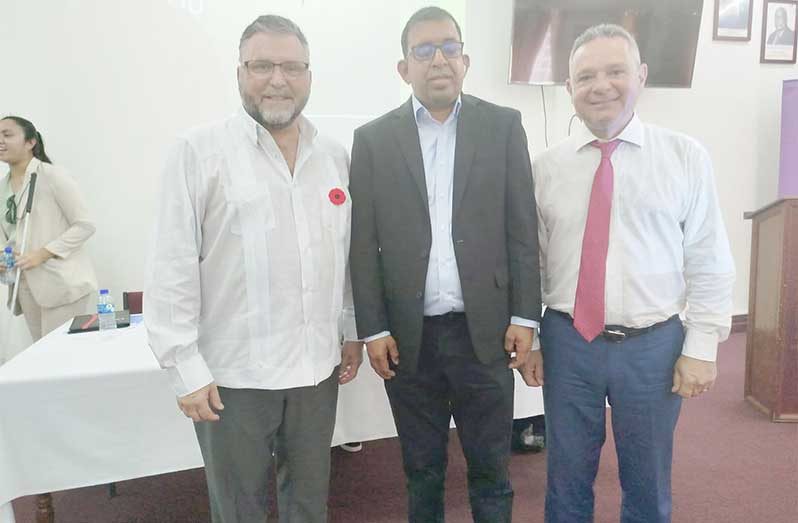THE Guyana Council of Organisations for Persons with Disabilities (GCOPD), on Wednesday, launched its elections accessibility audit and observation report for the 2025 General and Regional Elections (GRE), held on September 1, 2025, at the National Library, Georgetown.
Supported by the Canada Fund for Local Initiatives (CFLI), the GCOPD conducted an extensive audit and observation of approximately 470 polling stations across Regions Two, Three, Four, Five, Six, Seven, and Nine. The audit assessed how accessible polling stations were for persons with disabilities and evaluated the measures implemented to accommodate this often-marginalised group.
GCOPD Programme Manager, Ganesh Singh, noted that while improvements will take time, the findings of the report will help ensure that Guyana’s electoral system is fully inclusive.
He also acknowledged the efforts of the Guyana Elections Commission (GECOM) in making public buildings used for elections more accessible.
“I know that the government, based on their support for persons with disabilities and the promises made by His Excellency, that we will address accessibility holistically to ensure that our buildings, all public buildings, adhere to the standards that we have when it comes to accessibility,” Singh said, citing the Guyana Persons with Disabilities Act and the National Bureau Standards on Accessibility.
The comprehensive audit employed a combination of methods, including legal and policy reviews, real-time election-day observations, and interviews with voters with disabilities. Key findings included: 82.8 per cent of polling stations were on the ground floor, making them more accessible; 4.8 per cent of stations on higher levels had elevators or lifts; Although many facilities had ramps, 72.7 per cent were poorly designed and unsafe for wheelchair users; Only 23.9 per cent of stations had accessible washrooms, and 37.2 per cent had insufficient seating for those needing it; More than half of the stations had parking close to accessible entrances, though fewer than half were obstacle-free en route to voting booths; Adequate lighting and appropriately low writing surfaces were available at most stations, and ballot boxes were generally accessible; and measures for the hearing impaired, such as slow speech, written information, or sign language support, were also noted.
The report included recommendations to improve accessibility: Locate more polling stations on the ground floor or provide safe ramps or elevators for upper-level stations; Ensure adequate parking and zero obstacles from parking to polling booths, including enough space for wheelchair users; Deploy assistive materials such as tactile ballot guides for visually impaired voters; Train election staff to assist persons with disabilities effectively and set up polling stations for maximum accessibility; and allow voters with disabilities to select an assistant of their choice during voting.
Canadian High Commissioner to Guyana, Sebastien Sigouin, highlighted Canada’s longstanding support for Guyana’s democratic process, stressing that accessibility is a right, not a privilege.
“This launch of the report is about how we can support efforts to ensure that everyone, regardless of their abilities, has an equal right to participate in shaping the future of our democracy,” Ambassador Sigouin said.
The audit represents a crucial step toward ensuring that future elections in Guyana are fully inclusive, reflecting the principle that all citizens have the right to participate equally in the nation’s democratic processes.



.jpg)








